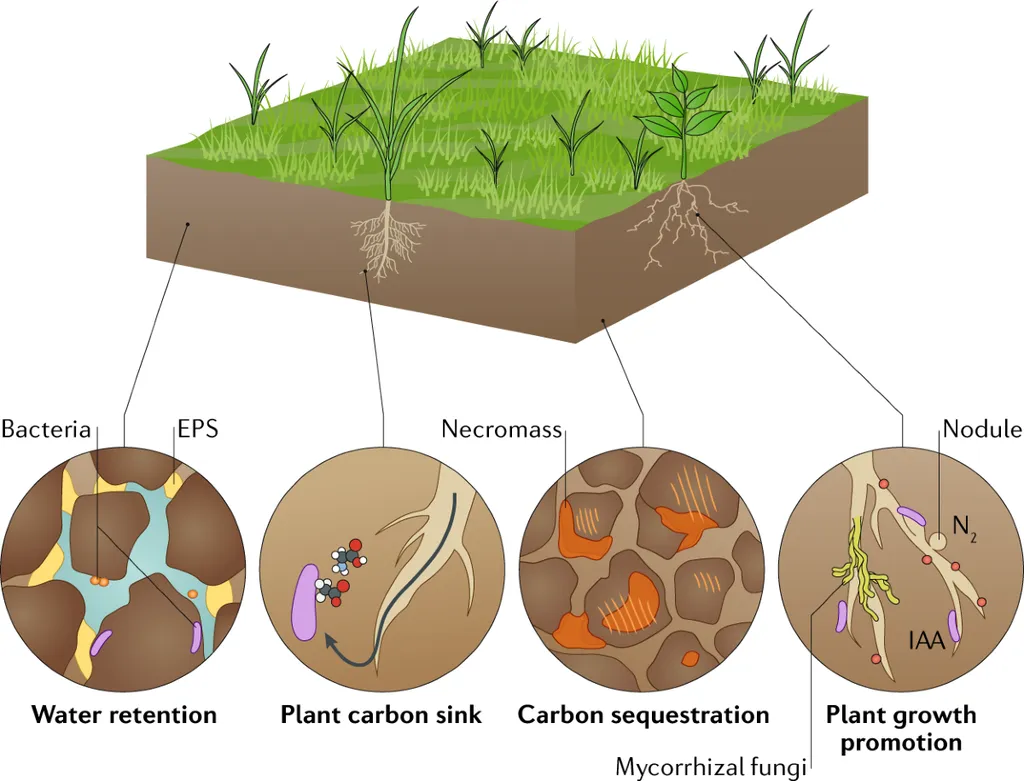In the face of escalating climate challenges and degraded soils, scientists are turning to an unlikely ally to bolster crop resilience: the plant microbiome. A comprehensive review published in *Plant Stress* sheds light on how harnessing beneficial microbial communities could revolutionize sustainable agriculture, offering a promising avenue to mitigate abiotic stresses like drought, salinity, and heavy metal toxicity.
The review, led by Swati Tripathi of the Amity Institute of Microbial Technology at Amity University, underscores the critical role of plant-associated microbes—such as plant growth-promoting rhizobacteria (PGPR), endophytes, and arbuscular mycorrhizal fungi (AMF)—in enhancing crop resilience. These microbes not only improve plant health but also restore soil fertility, which has been compromised by intensive agricultural practices.
“Intensive farming and environmental stresses have disrupted the delicate balance of microbial communities in the rhizosphere, the soil region influenced by plant roots,” Tripathi explains. “Restoring and engineering these beneficial microbes could be a game-changer for farmers facing problematic soils and unpredictable weather patterns.”
The review highlights several innovative strategies to enhance microbial populations, including sustainable farming practices, seed biopriming, selective microbial recruitment, nanotechnology, and precision microbiome engineering. These approaches aim to improve plant growth and productivity by mitigating stress impacts through physiological, biochemical, and molecular pathways.
One standout example is *Serendipita indica*, a fungus that has demonstrated broad-spectrum efficacy in enhancing plant resilience under diverse stress conditions. This case study illustrates the potential of microbial interventions to protect crops from environmental pressures, offering a sustainable alternative to chemical fertilizers and pesticides.
The commercial implications for the agriculture sector are substantial. As climate change intensifies, farmers will need resilient crops that can thrive in challenging conditions. Microbiome-based solutions could provide a cost-effective and eco-friendly way to boost yields while reducing reliance on synthetic inputs. “This research positions microbiome technologies as powerful tools for enhancing crop resilience and soil health,” Tripathi notes. “It paves the way for a more sustainable agricultural future, where farmers can adapt to changing environments without compromising productivity.”
However, the review also acknowledges challenges in scaling up these microbial technologies for field applications. Heterogeneous environments, regulatory hurdles, and the need for tailored solutions remain significant barriers. Future research will need to address these gaps to fully realize the potential of microbiome engineering in agriculture.
As the agriculture sector grapples with the dual pressures of climate change and food security, this research offers a glimmer of hope. By leveraging the power of the plant microbiome, farmers may soon have a new arsenal of tools to safeguard their crops and ensure sustainable productivity for years to come.

